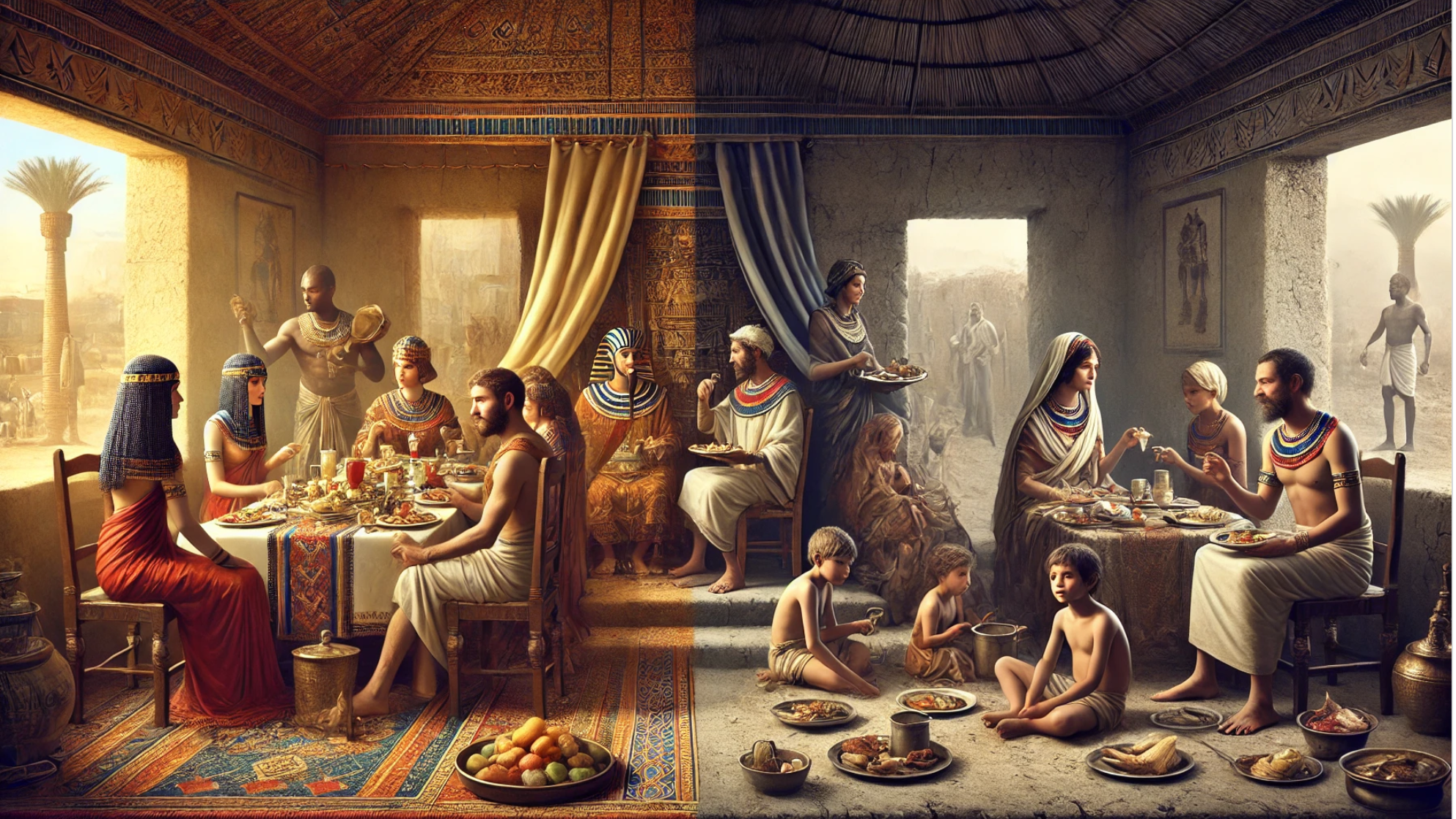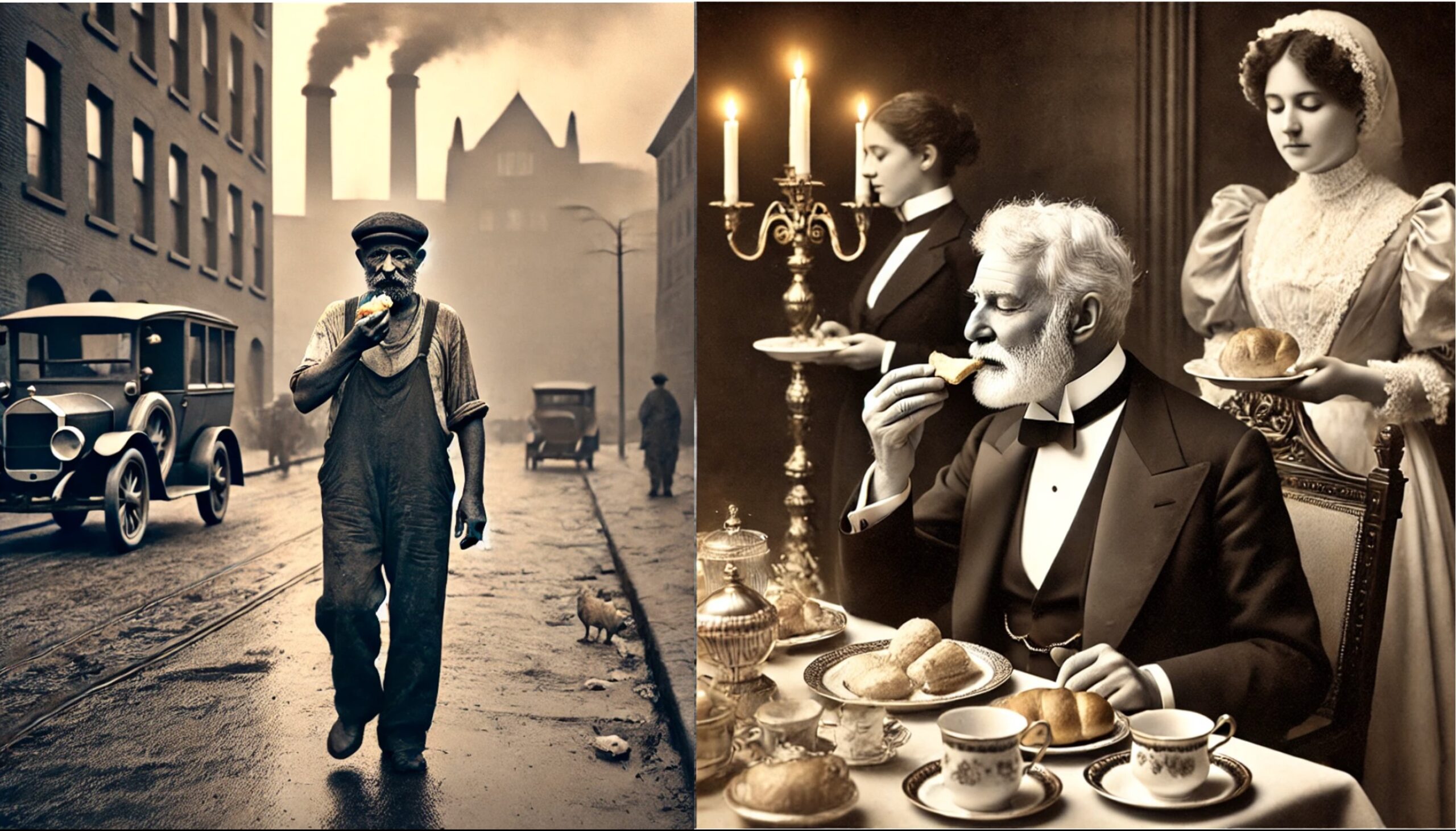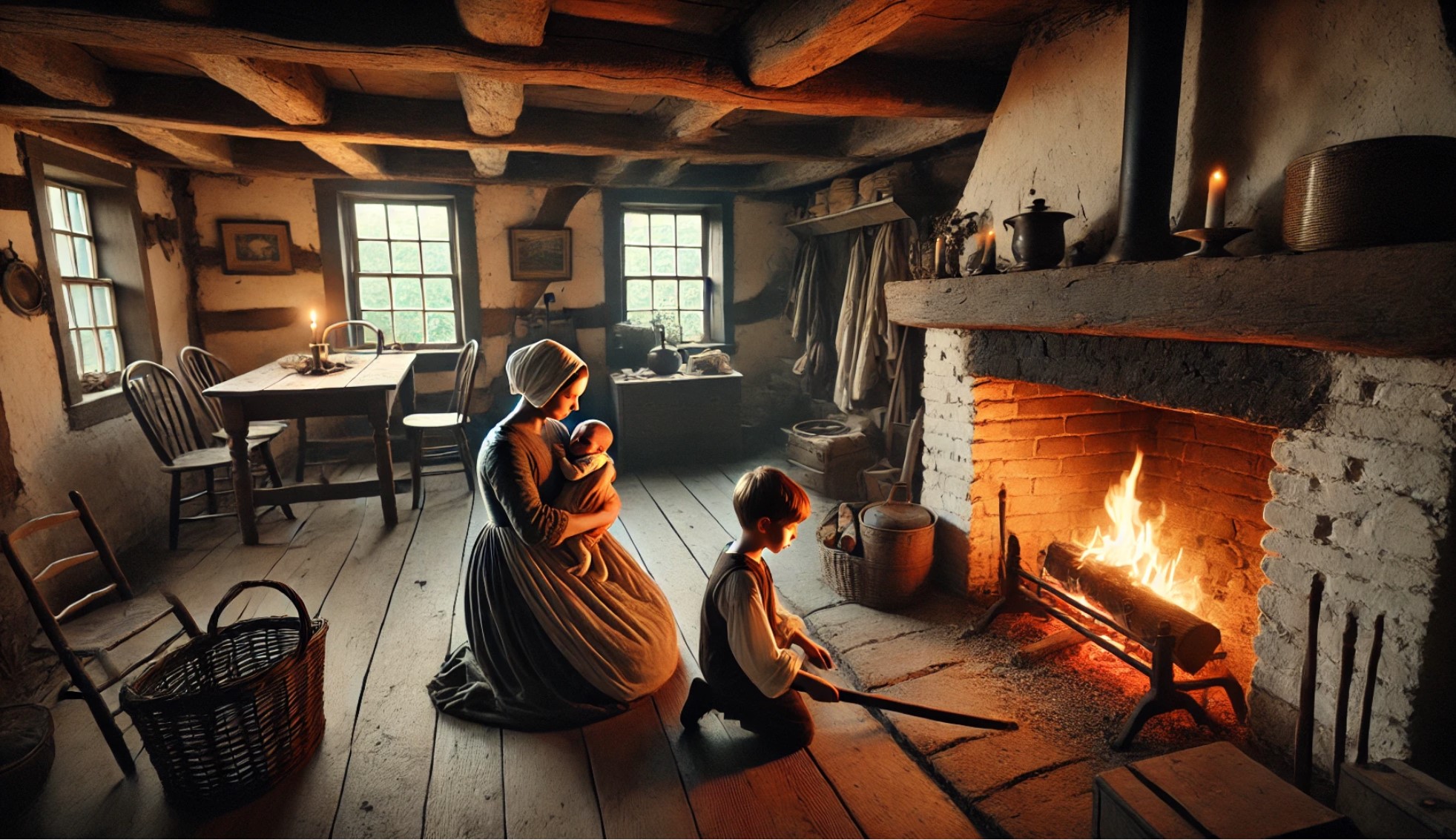Breakfast in Civilization Part II: A Noble and Peasant Family in Akhenaten's Time

1,343 BC
Waking up before sunrise to prepare a breakfast of bread, dates and beer, she can already feel the heat that will make work midday impossible. Beer is the beverage of choice because her family grows wheat and barley–the two most common crops in ancient Egypt–and because the Nile River is the water source for everything from crops, to all cleaning and the community toilet. Although they have no idea why, they have found that drinking beer, which is cooked, makes sickness less likely. As she offers her husband a hunk of bread, she reminds him to chew carefully and on the side of his mouth opposite his cracked tooth. She still feels guilty about the little stone she missed when griding wheat flour that broke that tooth. Although he never complained, she knew it had become quite painful for him.
Their modest farm is the property of a temple run by a minor nobleman who is a distant relative of Queen Nefertiti. While she is grateful they are free citizens, she knows the land they work does not belong to them and could be taken away if they don’t meet their prescribed tax quota. The entire family works all day, pretty much every day, to support the farm. It’s a daily challenge to get the calories required to fuel their bodies for the back-breaking labor. She hopes that today they’ll be able to get away from the fields long enough to catch some fish in the Nile, but the stone canals which distribute water to their crops are in need of some repairs so this may not be possible.
Today is the part of the year when weather allows for tending of crops, which the family will do for upwards of 12 hours. During the hottest part of the day, all will return to their home to rest in the shade for an hour or two before returning to the fields to work until Aten renews his war with the god of the underworld. There is no such thing as a weekend and while there are holidays, they occur during the parts of the year when the fields can’t be worked anyway. During those times, her husband and their younger son are conscripted to build monuments to Aten, Akhenaten and Nefertiti with little or no compensation. The eldest son is exempt as he attends school. In addition to the two sons, she has a daughter. She had another son, and another daughter, but that son died when he was only a few weeks old, and the daughter died at the age of three.
Despite being taxed nearly 2/3 of their earnings, she and her husband have managed to save enough to fund their oldest son’s education. This is a rare accomplishment for a farming family and they’re immensely proud of it. With an education, it’s possible their son could get a job as a scribe with the Government. The entire family is dedicated to the goal of squeezing just one family member through this extremely narrow lane of upward mobility in Egyptian society. Her constant worry is that one dry season, an illness, or perhaps a shakeup in the royal family, will derail those plans so she prays to Aten and Akhenaten every day for protection. What will end up crushing the dream of their son having a better life than theirs will be her husband’s sore tooth, which will become infected and kill him before his 28th birthday. This will lead to a disastrous chain of events where the farm fails to produce enough to meet the temple’s prescribed tax burden, forcing the surviving members of the family into slavery.
* * *
He awakens to sunlight streaming in through the window of his bedroom. Inwardly, he still believes the warmth and light come from the sun god Amun-Ra but outwardly, he must profess, as the pharaoh Akhenaten has decreed, it to be Aten. The elevation of Aten was a setback for him politically. Being a cousin, even a distant one, of Queen Nefertiti made him noble, but his domain is something of a backwater and he longs for a better position and greater wealth. During a trip to Akhenaten’s new capital, Akhenaten, he saw first-hand how noble houses more closely connected to the royal family lived. Larger houses with more servants, supervising more land and owning more slaves, jewelry and fine clothes than he did. He burned with desire to have their level of comfort and status. He’d been on a path to advancement through his connections to the high priest of Amun-Ra, second only to Akhenaten’s father, the pharaoh Amenhotep III. But when he died, his son Amenhotep IV assumed power, changed his name to Akhenaten and placed Aten above all the other gods. The high priest of Amun-Ra lost much of his influence and he lost his path to advancement.
As a servant helps him wash and shave, another attends to his wife, applying kohl to her eyes and selecting the jewelry she’ll wear. From a cabinet in his bedroom, he selects a kilt of fine linen, which has been cleaned by another one of his servants. After putting on a pair of leather sandals, he and his wife sit at their table and are served a breakfast of bread and fruit. As they’re discussing the banquet they’re hosting that evening, the children, two girls and a boy who have already been dressed and fed by other servants, are brought in.
He receives reports of how the season’s harvest is going. It has been a good year, despite one family, the father of whom died, being unable to meet their obligations. At first, he curses the reduction in expected revenues, but then realizes this will provide him with four new slaves, one of whom he’s told can read and write. He is also told their land has been plentiful in the past, so he feels certain he’ll have no trouble finding another family to work it effectively. On balance, he decides this is good news.




